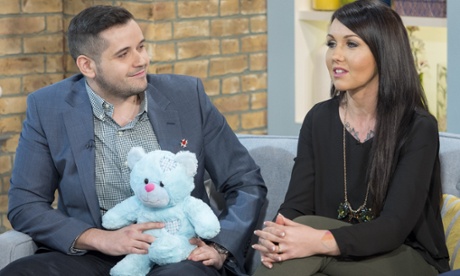
Jess Evans and Mike Houlston made a courageous decision when they were told 12 weeks into Jess’s pregnancy that one of the twins she was carrying had a condition so severe he would live for only a day or two. To their great credit, Teddy, who died a year ago, became Britain’s youngest organ donor – a story movingly told on other pages. His kidneys saved an adult’s life. The family’s decision became public last week.
One donor can save nine lives. Georgia Fieldsend was three when her mother prepared her for the operating theatre – not for surgery, but to ensure that others would have the gift of life. Georgia had been on holiday in 2013 with her parents, James and Ilse, when she suffered a fatal brain aneurysm. In the five days that followed, her parents made the decision to donate their daughter’s organs. Georgia saved the lives of four children and allowed two young men in their 20s to have sight. On 10 May, the family will release Georgia’s Song, written by teenage friends of the family, to help raise awareness.
According to NHS Blood and Transplant, the health authority responsible for organ donations, there is a chronic shortage and increasing demand for organs for all ages. Almost half of parents approached by hospital staff when there is no hope of a child surviving refuse to donate. In the past five years, 112 children have died in the UK because no donor organ was available.
Currently, there are more than 7,000 people on the UK national transplant list – yet fewer than 5,000 people a year die in circumstances in which they can become a donor. Over the past five years, there has been a 50% increase in the number of deceased donors and a 30.5% increase in transplants in 2012/13, but much still needs to be done.
It is imperative, therefore, that there is more open discussion, beginning in secondary school, about the taboos surrounding death, the value of organ donation and, above all, the comfort that many families say comes from the knowledge that a loved one has helped others.

